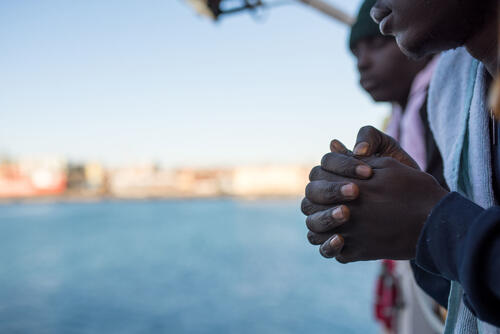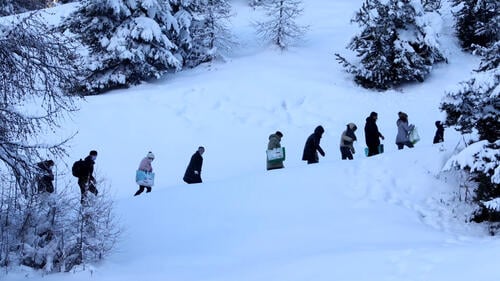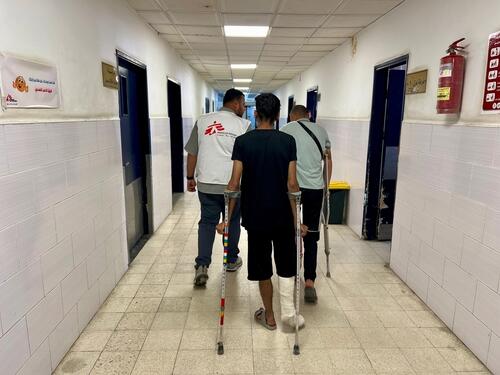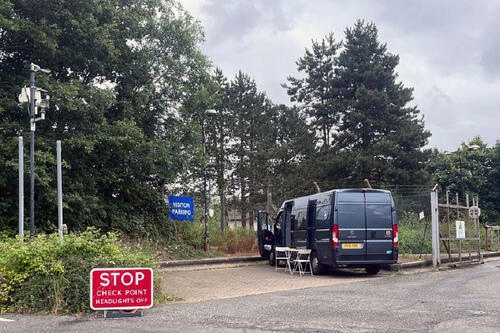An MSF team has provided psychological first aid to 104 survivors of shipwrecks in the Mediterranean Sea since early September. The most recent incident occurred just a few days ago when a small boat from Libya capsized off the coast of Lampedusa in heavy weather. Fifteen people were rescued by a fishing boat but five people are missing, including a two-year-old girl. MSF psychologist Ester Russo met the survivors.
Fatima cannot find peace. Time stopped for her when she could no longer see her two-year-old daughter in the seconds after a big wave capsized their boat. Her daughter and four others are still missing. Days after the tragic event, she keeps seeing in her mind the picture of her daughter in her arms.
On that same journey, nine-year-old Ibrahim lost his mother and now he is alone in Italy. His father stayed on in Libya. Before our arrival, Ibrahim drew a picture showing the tragic events of that night. Another young man, who lost his cousin on the journey, told us that Ibrahim’s mother had war-wounds – one bullet in her leg and another in her spine.
When the group left Zawiya, on the coast of Libya, they were aware that the Mediterranean crossing could be a deadly journey but being stuck in Libya meant certain death.
All the survivors of this tragic event share the memory of the big wave that threw them into the water. Before that, they had sailed for 48 hours in the central Mediterranean with nothing to eat or drink. They ran out of fuel when they were only about 60 kilometres from the island of Lampedusa, just as the weather was getting worse.
Our teams have met survivors who were left adrift in the middle of the Mediterranean Sea for 10 days without being rescued – men, women and children trying to reach a safe place to escape death and the horrific tortures perpetrated in Libya.Ester Russo, MSF psychologist
The boat capsized at around 1 am. Luckily, a fishing boat was nearby. The crew lost no time in rescuing them and giving them dry clothes. The survivors immediately counted to check that everyone had been rescued. In that moment, death breached their future: five people were missing.
This was the fifth time since early September that MSF teams have provided psychological first aid to survivors of shipwrecks in the Mediterranean – four times in Sicily and once in the Calabria region. It’s proof that boat departures from Libya don’t stop, despite the total absence of search and rescue ships, which have been prevented from going to sea by administrative blockages and by inhumane policies that leave people abandoned and with no chance of rescue.
Our teams have met survivors who were left adrift in the middle of the Mediterranean Sea for 10 days without being rescued – men, women and children trying to reach a safe place to escape death and the horrific tortures perpetrated in Libya.
So far this year, at least 500 people have lost their lives in the central Mediterranean and nearly 9,000 people have been forcibly returned to Libya.
For people like Ibrahim and Fatima, their journey has not yet come to an end. Like all the other survivors, they should be given the chance to start a new life.
Before leaving, we prayed with them, facemasks bathed in tears.
Names have been changed.






